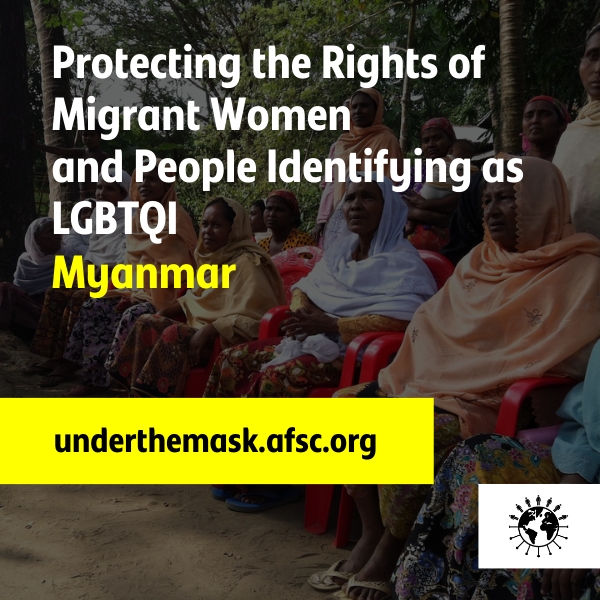Case Study: Protecting the rights of migrant women and people identifying as LGBTQI in industrial slums during the government-imposed lockdowns and the military coup d’etat
During the lockdowns imposed by the Myanmar government to control the spread of COVID-19, a small civil society organization (CSO) worked in coalition with other CSOs, local nongovernmental organizations (NGOs), and lawyers’ groups. Their goal was to defend the rights and meet the basic needs of migrant women and LGBTQI people working in the slums that have grown up around textile factories in Myanmar’s commercial hubs. Due to the current situation in Myanmar, in which a military coup is being bravely resisted by millions of people, and members of the CSOs who had actively worked to protect civic space under the elected government are mostly in exile, in hiding, or have taken up arms. To be connected in any way with a CSO at this time is to be in serious danger.
Executive Summary:
This case study contains two stories:
1. Lockdown, protests, and hunger: The story of how the national and local lockdown rules put in place by the Myanmar government to slow the spread of COVID-19 intersected with an absence of adequate protection in law, systems, and practice for some of the most vulnerable people in Myanmar, and the work of a Myanmar CSO (BRM) to keep women’s rights and LGBTQI rights on the agenda and to address these gaps.
2. Solidarity, threat, and hope: The story of the challenges and dangers faced by women migrants, people identifying as LGBTQI, and this CSO since the Myanmar military took power on February 2021, and their responses.
Download in: Français, Español, العربية, မြန်မာ, Bahasa Indonesia
